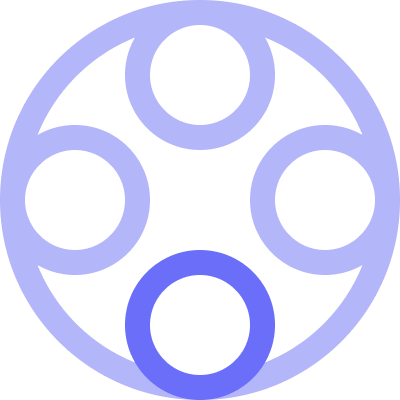A “DAO” is a decentralized autonomous organization— which uses an admittedly clunky acronym to represent a formalized community that can self-govern and take on some aspects of a company.
Everyone who uses the blockchain gets a NEAR account. It’s sort of like a Facebook or Google or bank account except that, just like NFTs, it’s permanent because it lives on NEAR’s “forever network” and it’s not associated with any particular company. It’s 100% yours and you can call it whatever you want – for example by naming it after your Twitter or Insta handle (I see you `machoman99`). This account can store your tokens, your NFTs or pretty much anything else you do on the platform.
A DAO is basically just a more advanced account which can be shared between a group of people. In this way, it’s similar to a bank account but it doesn’t actually need a bank.
Why DAOs are so powerful
DAOs are useful because they can do anything an individual user can but they can also represent all of the users who are their members. In the simplest example, you can store a bunch of tokens in a DAO and the group of users in the community can vote to send them to different places. Let’s use the example of a fanclub DAO we’ll call `dj_blokk_fanclub`, where fans of that artist pool funds to buy VIP tickets for a show and raffle them off. Because the community exists on a permanent platform like NEAR, it isn’t lost if Facebook or Snap suddenly become less popular.
This example is simple but bear with me. Just like NFTs, DAOs are a basic tool that quickly gets extremely powerful.
For example, a community can issue a token (it’s called a “Fungible Token” aka “FT”) and use that token to determine what kind of privileges their members get. For example, let’s say our DAO issues 10,000 `$BLOKK` tokens to split among the fanclub’s early members and then automatically creates another 10,000 each year that can be distributed to new members, really helpful members who help the group govern itself, or people who refer new members. And let’s say members need to hold 10 `$BLOKK` tokens to join the VIP Discord server. This incentivizes community members to be extra engaged and helpful.
Or maybe the community’s DAO issues the same 10,000 `$BLOKK` tokens but gives 1,000 to the actual DJ Blokk in appreciation and DJ Blokk gives special VIP show access to anyone who holds more than 100 `$BLOKK` tokens. This is important because now the creator and the community are beginning to directly align themselves. And the token suddenly has value as well.
Finally, it gets magical when we combine the DAO with NFTs. Let’s say DJ Blokk is putting together a new single and wants to fund it from within the community. The artist can sell `$BLOKK` tokens and, in exchange, issue an NFT that sends some of its royalty stream back to the community’s DAO.
Suddenly, you’ve unlocked:
- A way for communities to be platform independent and distribute funds
- A crowdfunding mechanism for artists
- A way for community members to be financially aligned with making the artists they support successful, creating extremely high engagement and virality.
As with NFTs, we still don’t know all the ways you can use DAOs to support creators and communities but just these few are enough to break existing industry models.

